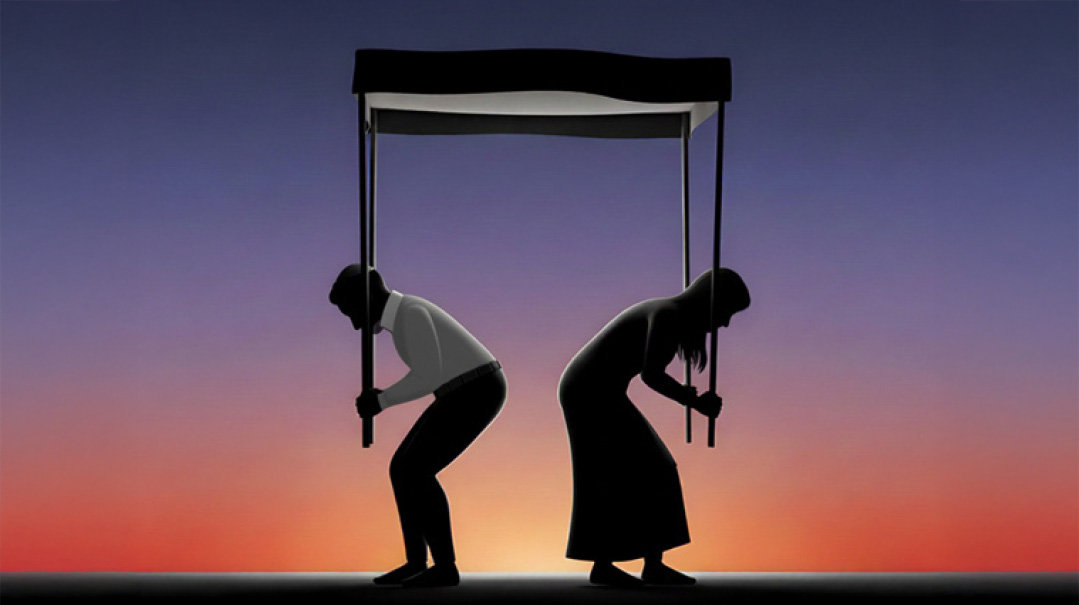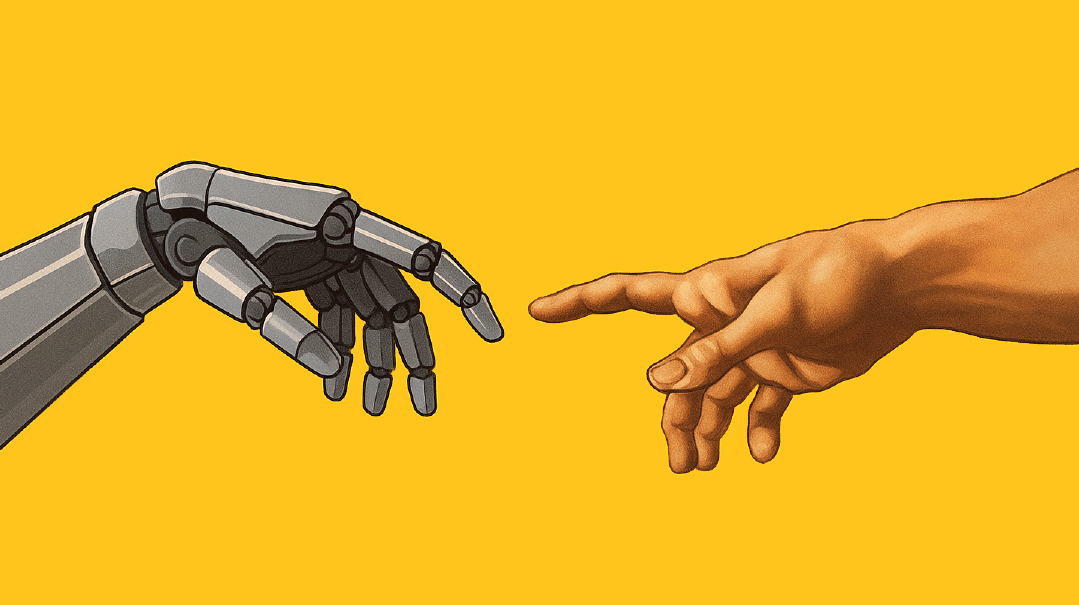Better Over Here

As vulnerable as we feel, we are also that much closer to our Father’s embrace

It’s a slightly chilly Wednesday morning — the kind where you’re not quite sure whether to take a jacket, because the sun is warm and generous but big patches of clouds cover swaths of the city — and Yerushalayim is holding her breath.
This morning two nail-packed bombs went off at a pair of the city’s busiest bus stops, diabolically synchronized for maximum casualties. If you know this city’s waking patterns, then you know that bus stops at seven a.m. are filled with people going to work (Israeli offices and clinics open early) and teens heading to school. Our enemies know this too; they live right here among us.
It’s nine forty-five and I’m standing at the Bar Ilan bus stop with my nine-year-old, who has an appointment at the eye doctor. The thing about Israelis is that much like their Sabra namesakes, they are simultaneously spiny and soft. So the shop-owners and pedestrians of the Bar Ilan intersection are going about their usual business, stocking shelves and making pizza dough and looking for bargains in the shekel store. And the bus stop is packed with people who are surely mentally replaying the morning news and scanning the area for any suspicious packages — but just as surely are waiting stolidly, determinedly, for their buses.
Still, if you listen very carefully to the usual sounds of traffic and music and conversation, you can hear it: the sound of a city subdued, paused, holding its breath. Yes, there are jobs to do, errands to run, appointments to keep. And yes, Sabras don’t allow things like bombs or murderous neighbors to disrupt their plans to go right on living. But the steely resolve is not quite as tough as it looks. We’re all waiting to hear the names of the casualties, to discover which neighborhood will be shrouded in grief, to see the faces of those who will never wait at a bus stop again. Really, everyone’s waiting to mourn.
A
tall man approaches the bus stop. His face looks just about normal: yarmulke, beard, piercing eyes. But his outfit of undershirt, crocs, and suit is the first giveaway. Then he imperiously commands the girl on the bench to make room for him. We all shrink back. The man sits down, rolls up his pants leg, and starts massaging a leg that is stiff, red, and shiny. He mutters softly to himself. We all know instinctively not to make eye contact.
“Yoter tov b’Amerika,” he says. Then louder, “Yoter tov b’Amerika.” No one responds, and soon enough he’s yelling. “Yoter tov b’Amerika! It’s better in America! In America this doesn’t happen!”
I wonder what my nine-year-old thinks of the spectacle, of the whole surreal morning. It started with the horrific news of one bomb, then another, as lunches were packed and sneakers donned. How do you send your children to school as this kind of news comes in?
You’re a parent, so you want to shelter your kids, encase them in bubble wrap, and tell them it’s all going to be fine, we’re always going to keep you safe. But you can’t make promises like that. You swallow back the bile, find words that seem right — for now at least — and make it clear that anyone who’s very nervous or sad or shocked can call you and feel free to come home. Then you say goodbye and daven extra hard.
Now this not-quite-there fellow is helpfully pointing out to my little boy that his parents could have picked somewhere safer to raise him, that he really doesn’t have to associate his new glasses prescription with the day of a deadly bombing. Yoter tov b’Amerika.
A man with a thick American accent answers the unspoken accusation. “It’s not better in America,” he says, his Hebrew a bit clumsy but the passion more than compensating for any grammatical errors. “In America anyone can walk into a store and buy weapons. It’s not safer there.”
“Yeah, they have random shootings in America more often than here,” I add, still not making eye contact with the bearded man in the undershirt and suit. “There was just a shooting in a big store yesterday.”
“Really? It’s not better in America?” he asks. He doesn’t believe us.
He doesn’t believe us because we’re using all the wrong arguments.
W
e’re standing at a bus stop in waiting-to-grieve Yerushalayim, talking about gun access and Walmart. A pair of parents in Har Nof is waiting to hear if they will ever again embrace their teenaged son who ran out this morning to make his bus. A family of Ethiopian immigrants is waiting to discover if they paid the ultimate price for their journey to the Promised Land. Soon their bitter news will be public knowledge, and the country will let out its collective breath and cry together.
In America it may be safer, but even that’s doubtful. It certainly isn’t better. Not because of the Second Amendment or because of social media trends or progressive politicians or the swelling, senseless violence.
Tovah ha’aretz, this land is very good. It’s good because as vulnerable as we feel, as vulnerable as we truly are — and we don’t doubt that, we don’t deny it — we are also that much closer to our Father’s embrace. That’s the hope, the comfort, the solace I hold on to as I hold my breath along with the entire city. It’s the message I hope my children are absorbing, the answer I wish I could give the muttering man at the bus stop.
—Shoshana Friedman
Managing Editor
(Originally featured in Mishpacha, Issue 932)
Oops! We could not locate your form.







